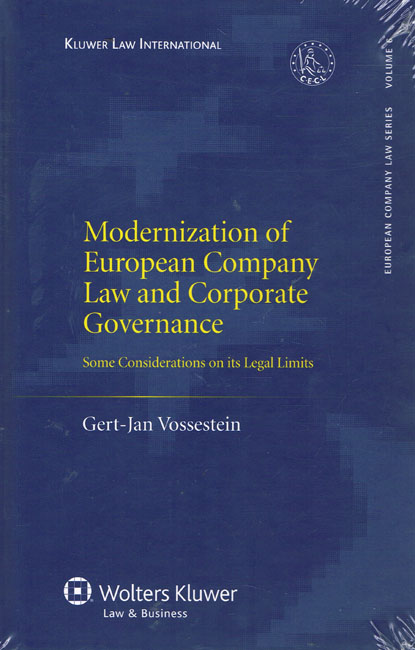We are now closed for the Christmas and New Year period, returning on Monday 5th January 2026. Orders placed during this time will be processed upon our return on 5th January.

What are the legal limits of the European Community’s competence in the matter of company law? As many company law instruments have already emerged as a result of the European Commission’s Action Plan to Modernize Company Law of May 2003 and various new modernization instruments are still expected to follow, this question has become particularly important.
In case an EC company law instrument is in breach of the above limits, its legality may be challenged before the European Court of Justice; significantly, since adoption of the Action Plan the Court of Justice has indeed issued several rulings on the lawfulness of such instruments.
This new book offers a substantial framework for examining the competence or powers of the EC in the field of company law, and the requirements for the lawful exercise of these powers (the principle of subsidiarity and the observance of Article 43 EC in particular). In order to provide a clear understanding of the practical relevance of this framework, the author tests the provisions of specific EC company law instruments for compatibility with the EC Treaty.
Although the substantial body of EC company law that has been built up over the years is covered, the focus is on EC company law instruments which have been adopted in implementation of the 2003 Action Plan. The book includes a survey of the various company law instruments (both pre- and post-Action Plan) which together make up EC company law, and discusses the objectives of EC company law policy.
Modernization of European Company Law and Corporate Governance will be welcomed by lawyers, academics and policymakers for a variety of reasons – as the clearest analysis available of the ongoing impact of the Action Plan, as a practical investigation of the interface between company law and EC law, and as a point of departure for investigation on the limits of competence in such related fields as EC contract law and EC securities law.